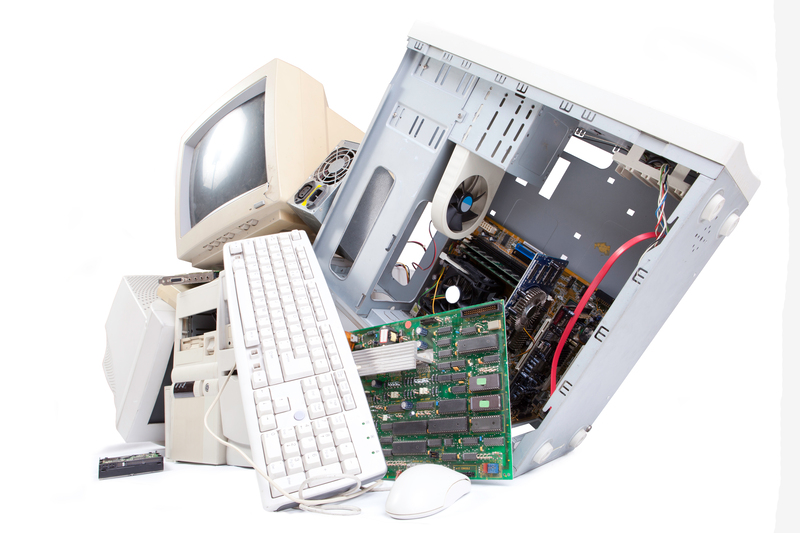As the demand for natural resources escalates, the importance of recycling metals becomes more pronounced. Beyond the obvious benefits to sustainability and resource conservation, recycling metals offers a range of hidden environmental benefits that are often overlooked. This article delves into these benefits, exploring why recycling metals is not just environmentally friendly, but essential for our planet's health.
Understanding the Importance of Metal Recycling
Metal recycling is an integral part of sustainable development. It helps reduce the need for mining, conserves energy, and lowers greenhouse gas emissions. By recycling metals like aluminum, copper, steel, and others, we can significantly reduce the environmental impact of metal production.

Reduction of Mining Activities
- Environmental Disruption: Mining activities severely disrupt the environment, leading to deforestation, soil erosion, and habitat destruction. By recycling, we decrease the demand for new metal extraction, thereby protecting natural landscapes.
- Water Conservation: Mining requires significant amounts of water, jeopardizing local water supplies. Recycling metals, on the other hand, uses considerably less water, contributing to water conservation efforts.
Energy Consumption and Conservation
One of the most compelling benefits of metal recycling is the remarkable reduction in energy consumption. Producing new metals is energy-intensive, but recycling can dramatically reduce this energy usage.
Energy Savings in Metal Production
- Aluminum: Recycling aluminum uses about 90% less energy than producing new aluminum from raw materials.
- Copper: The energy savings in copper recycling processes are remarkable, using up to 85% less energy compared to mining and processing new copper.
- Steel: Using recycled steel instead of virgin ore to make new steel products uses 60% less energy.
Such significant energy savings contribute to reducing carbon footprints and lowering emissions from energy production, which are critical components of battling climate change.
The Role of Recycling in Reducing Greenhouse Gas Emissions
The impact of widespread metal recycling on greenhouse gas emissions is profound. By using recyclable metals, we significantly cut down the emissions usually linked with raw material processing.
Emissions Reduction Potential
It is estimated that recycling metals reduces greenhouse gas emissions by a significant margin. For example:
- Aluminum Recycling: Avoids approximately 95% of the greenhouse gases emitted from primary aluminum processing.
- Steel Recycling: Reduces CO2 emissions by about 1.5 tonnes per tonne of steel produced.
Conservation of Natural Resources
Recycling metals also plays a crucial role in conserving natural resources. Metals such as copper, aluminum, and steel are finite resources. Recycling helps in preserving these valuable resources for future generations.
Resource Efficiency
- Preservation of Ores: By recycling, we can extend the lifespan of existing mineral supplies, ensuring that essential metals remain available for future use.
- Reduced Landfill Waste: Recycling metals reduces the amount of waste directed to landfills, conserving land and preventing environmental pollution.

The Economic Benefits Aligned with Environmental Gains
Beyond the environmental advantages, metal recycling also propels several economic benefits. These benefits further emphasize the need for robust recycling systems worldwide.
Job Creation and Economic Growth
- Employment Opportunities: The recycling industry creates numerous jobs worldwide. It supports local economies by providing employment in collection, processing, and transportation sectors.
- Cost Efficiency: Producing metals from recycled materials is generally cheaper than using virgin ore, offering economic incentives for manufacturers to engage in recycling practices.
Closing the Loop: Circular Economy
Recycling metals is a perfect illustration of a circular economy in action. By continuously recycling metals, we minimize waste and promote the efficient use of resources, which is fundamental to sustainable industrial systems. This circularity helps maintain the balance of natural ecosystems, ensuring environmental protection while supporting economic stability.
The Future of Metal Recycling
As advancements in technology evolve, the efficiency and capacity of metal recycling methodologies will grow, further enhancing the environmental benefits. Innovations in recycling processes and increased global awareness about sustainability are crucial to realizing the full potential of metal recycling.
In conclusion, the hidden environmental benefits of metal recycling are immense, contributing significantly to sustainable development goals. From reducing energy consumption and greenhouse emissions to conserving water and natural resources, the impact is multidimensional. By championing metal recycling, we not only support environmental conservation but also drive economic growth and foster sustainable industrial practices. It's a win-win situation for the environment and the economy alike.